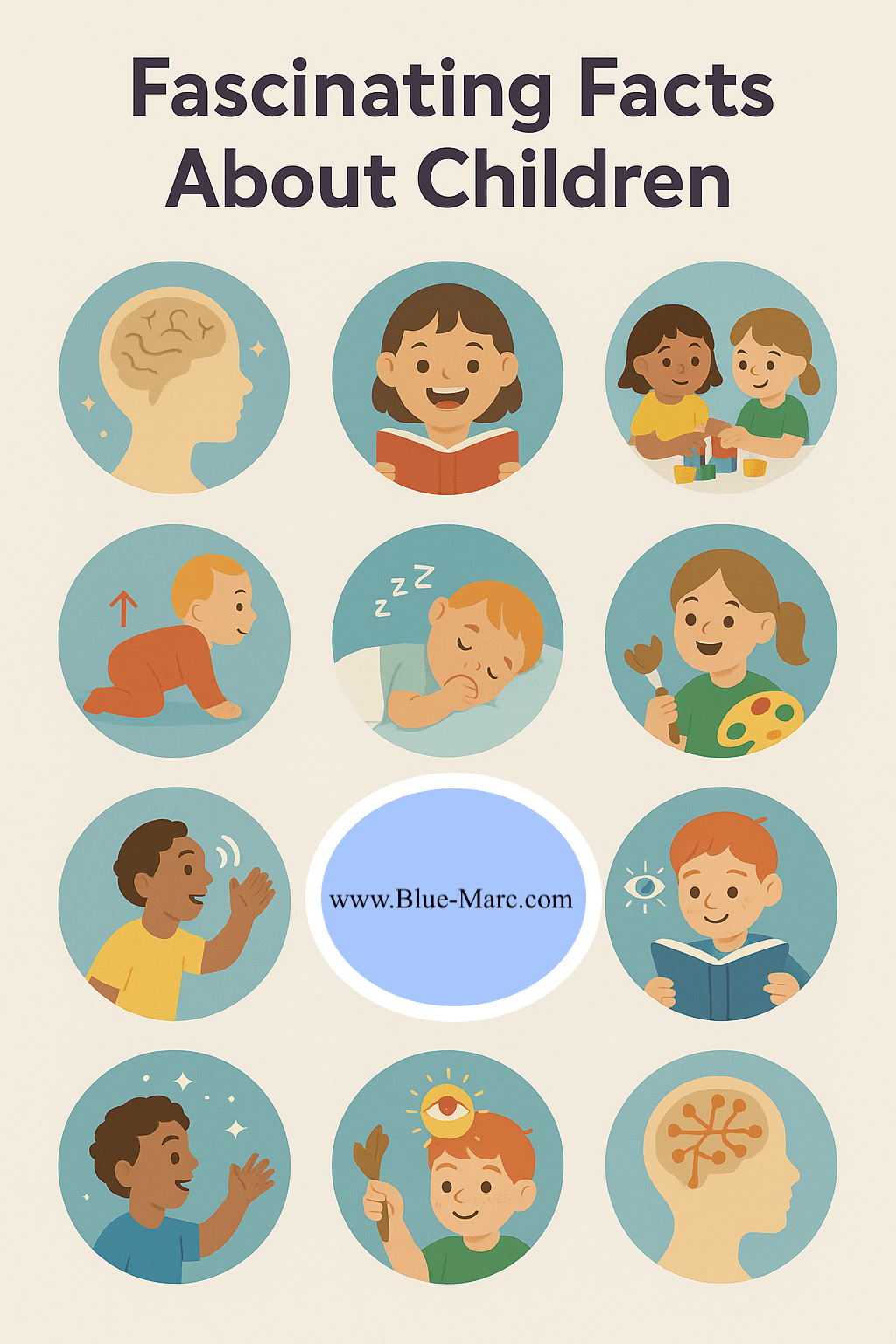
Fascinating Facts About Children That Will Amaze You
Share
Introduction: Unlocking the Magic of Childhood
Children, with their vibrant energy, unique perspectives, and constant curiosity, never cease to captivate us. As we watch them grow, we discover fascinating truths about their development, behaviors, and potential. In this blog post, we’ll dive into amazing scientific facts about children and offer practical tips parents can use to support their growth.
1. Rapid Brain Development By age three, a child's brain is already 80% the size of an adult’s. Every second, over one million new neural connections form. These early years are critical for learning, as the brain is especially responsive to experiences and stimulation.
Parent Tip: Read daily, play interactive games, and provide sensory experiences to support neural growth.
2. Language Acquisition Superpowers Children absorb language rapidly. By age five, they typically know over 5,000 words and understand the structure of language through everyday interaction.
Parent Tip: Speak clearly, ask open-ended questions, read books aloud, and sing to build vocabulary and communication skills.
3. Play = Brain Power Playtime is essential for emotional, cognitive, and social development. Imaginative play enhances memory, attention span, and problem-solving abilities.
Parent Tip: Offer open-ended toys (e.g., blocks, dolls), create play zones, and allow for both structured and unstructured play.
4. Superhuman Hearing in Early Years Babies can hear a broader range of frequencies than adults. This heightened sense allows them to distinguish voices and sounds critical for language development.
Parent Tip: Talk often, use varied tones, and limit background noise during interactions.
5. Innate Musicality Even infants respond to rhythm and melody. Exposure to music enhances brain areas responsible for language, coordination, and emotions.
Parent Tip: Play music, encourage movement to rhythm, and consider baby music classes to nurture auditory and motor development.
6. Growth Spurts Are Real Children experience multiple growth spurts—in infancy, toddlerhood, and adolescence. These spurts can impact mood, sleep, and appetite.
Parent Tip: Monitor changes, ensure proper nutrition, and stay flexible with routines during these phases.
7. Children Need More Sleep Than You Think Newborns need up to 17 hours of sleep per day. Even preschoolers require 10–13 hours. Adequate sleep boosts memory consolidation, emotional regulation, and immune function.
Parent Tip: Create a calming bedtime routine, keep a consistent sleep schedule, and limit screens before bed.
8. Taste Bud Overload Children have more taste buds than adults, making them more sensitive to flavors. This explains picky eating behaviors and sudden food aversions.
Parent Tip: Introduce foods slowly, repeat exposures, and avoid pressuring them to eat.
9. Mirror Neurons Help Children Imitate and Learn Mirror neurons allow children to copy facial expressions, movements, and language. It’s how they learn empathy, emotions, and cultural behaviors.
Parent Tip: Be a role model. Speak kindly, express feelings, and practice positive social habits.
10. Synaptic Pruning Makes the Brain More Efficient After age three, the brain begins eliminating unused connections. This process strengthens pathways used frequently, enhancing efficiency.
Parent Tip: Encourage repetition of meaningful activities—like reading, playing, and problem-solving games.
11. Children Learn Best Visually Children’s brains process images more easily than text. Visual stimuli help with memory retention and understanding.
Parent Tip: Use picture books, flashcards, and visual schedules to support learning.
12. Remarkable Sense of Smell Babies can identify their mother’s scent just days after birth. Their heightened sense of smell supports emotional bonding and familiarity.
Parent Tip: Hold your baby often and maintain consistent scents (e.g., lotion or fabric softener) to enhance bonding.
13. Developing Motor Skills Motor development progresses from gross movements (rolling, crawling) to fine skills (grasping, writing). Mastery of these skills lays the foundation for independence and self-confidence.
Parent Tip: Offer toys that promote movement (balls, tunnels) and fine motor control (puzzles, stacking cups).
14. The Power of Emotional Support Secure attachments lead to better emotional regulation, self-esteem, and resilience. Children thrive when they feel seen, heard, and valued.
Parent Tip: Practice active listening, respond with empathy, and maintain a calm, predictable environment.
Conclusion: Celebrating the Wonder of Childhood
Children are nature’s greatest marvels—growing, learning, and adapting at an astonishing pace. As parents, caregivers, and educators, we play a vital role in nurturing their curiosity, talents, and dreams. By understanding these incredible facts and offering thoughtful support, we help unlock their full potential.
Let’s celebrate childhood and commit to empowering the next generation of thinkers, creators, and compassionate humans.
